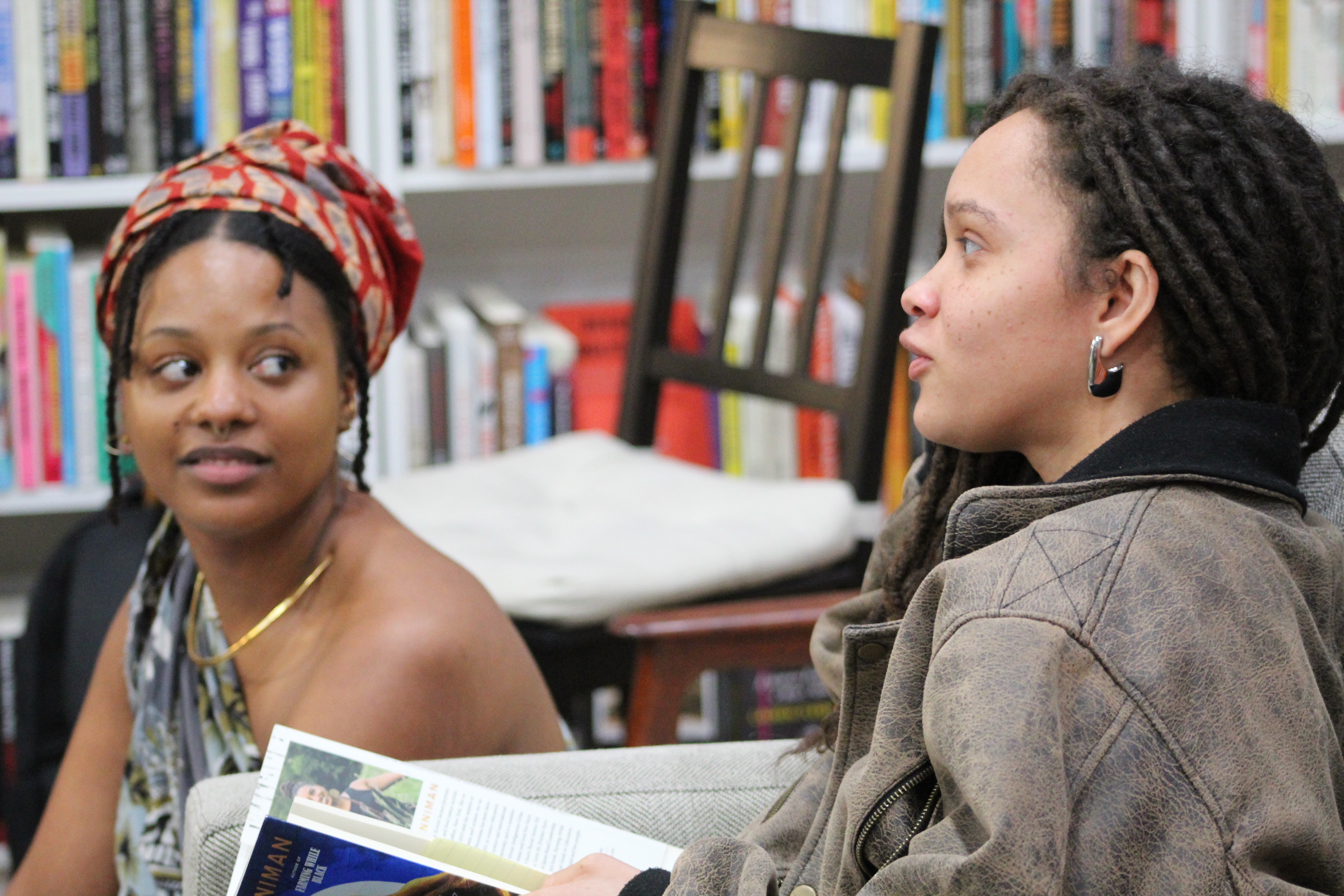
Arts & Culture | Arts, Culture & Community
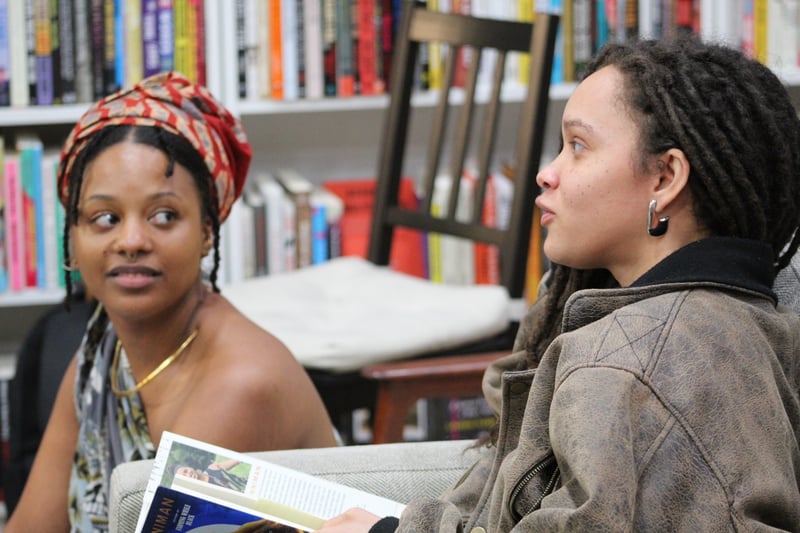
Zion Jones of Gather New Haven and Nyzae James of BAMN Books curated a discussion of Leah Penniman's Black Earth Wisdom at Possible Futures. Danielle Campbell photos.
Oliver Buzzard came to Connecticut from California’s Central Coast near Los Padres National Forest. They were used to being outside with trees to decompress from stressful situations in their life. It was when they came to New Haven that they felt more disconnected from the land than they were accustomed to at home.
“It just feels so different to me and I don't have a sense of the land here even though I've been here for like four years. Part of the reason is because [in] college I just felt really severed from being able to be in land relationship because everything was [about] doing school,” said Buzzard.
They got a chance to share their disconnection and reconnection with other local nature lovers during an end of Black History Month book discussion about Leah Penniman’s Black Earth Wisdom led by Gather New Haven at Possible Futures book space.
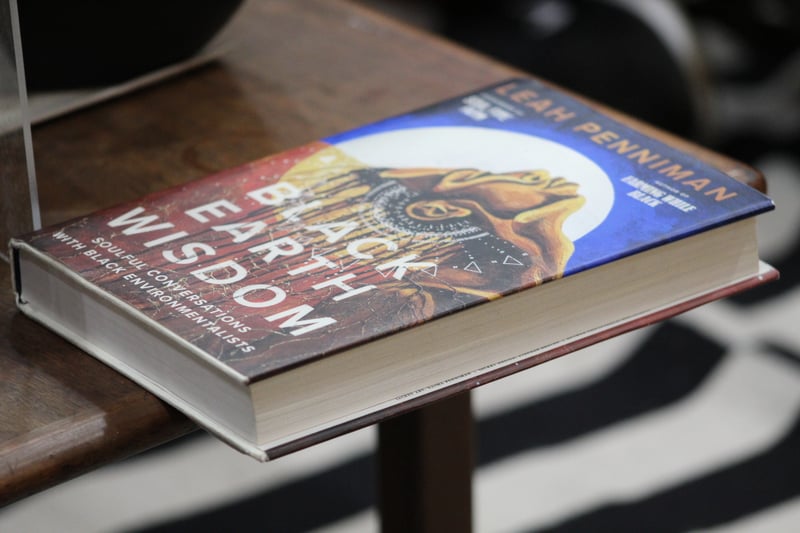 Zion Jones, environmental educator at Gather New Haven, led the discussion with the help of Nyzae James, owner and creator of BAMN Books LLC. Jones prompted discussion by asking those in the room to share how they connect.
Zion Jones, environmental educator at Gather New Haven, led the discussion with the help of Nyzae James, owner and creator of BAMN Books LLC. Jones prompted discussion by asking those in the room to share how they connect.
Some work with nature as a profession. Some have rituals in how they communicate with nature, and some have no current connection to the nature around them but want to establish one.
Buzzard said their favorite way to commune with the land is through grounding, or putting your bare feet to the earth. They also love singing to trees and plants and said that makes them feel more “attentive to them” in their relationship with the trees and plants.
“These are the things that sustain,” Jones said. “I don't know how I would survive without all of these things that we spoke about that touch our lives and help us feel more connected and a part of this earth.”
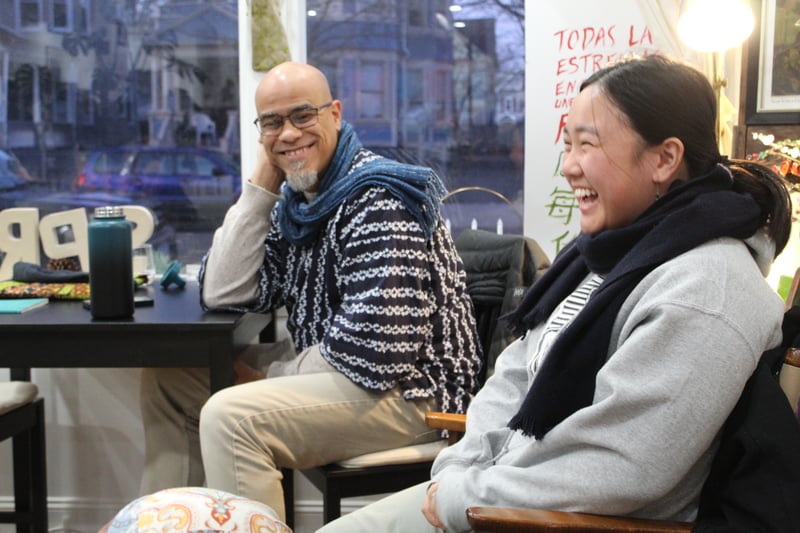
Halfkenny (center) is featured in Black Earth Wisdom.
Babaláwo Onígbọ̀nná Enroue Halfkenny, who also is referenced as Awo Enroue Onigbonna Sangofemi Halfkenny, is featured in Black Earth Wisdom’s chapter, It is Time for a New Covenant along with Awise Agbaye Wande Abimbola and Yeye Luisah Teish. The chapter is about African traditional and diasporic religions and how they regard and revere the earth. Halfkenny talks about his relationship to water.
“What is this earth wisdom from the perspective of people of African heritage that is very often invisible and is not just through the narrative of people recovering from the trauma of the enslaved and kind of having to work the land in certain ways,” Halfkenny said. “So, it's this real kind of other like, what is this place of wisdom, of liberation, and struggle and wholeness and claiming and reclaiming and suffering and all those things.”
The book discussion was rich with learning about the Black indigenous way of communing with the earth and its many parts. The main lesson was to shift how everyone in the room saw nature and their relationship to it.
Halfkenny said we should integrate the messages of the earth into our lives.
“I was actually sitting in a cafe reflecting on the river. And I was just looking at life going by, and I was like, ‘Everything is just a river.’ Right? So, change is everything. We're literally not the same being from moment to moment, right? It’s easy to see that in the river, right?” Halfkenny said. “The river’s not the same. It's always moving, right? [There] are these little drops, and each drop moves on the path of least resistance. That's the governing relationship that the water has to the land.”
There were a few people in the room who worked including Molly Babbin. They appreciated that the book wasn’t as negative as many of the climate conversations seem to be. They felt warned but hopeful.
“I think somehow just scaffolding in this book of a long lineage of knowledge and amazing work at the beginning with so many prayers. And it's so rooted, that I feel like all of those facts were there and more like scientifically backed by just brilliant people,” said Babbin.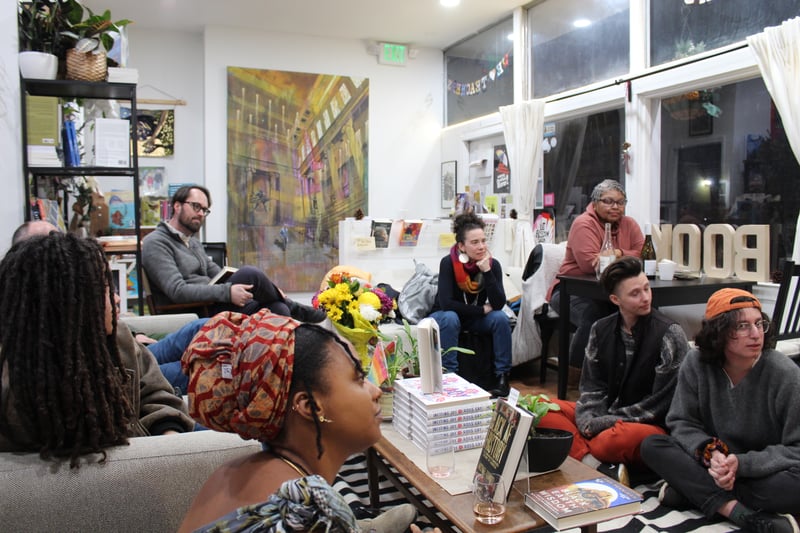 The ability of the book to be in conversation with so many Black experts in different disciplines and communication with nature was a notable reflection amongst the group.
The ability of the book to be in conversation with so many Black experts in different disciplines and communication with nature was a notable reflection amongst the group.
“The book is like a testament to the transcendental scientific understanding of African descended people to the earth,” Jones said, describing her love for the book as a Black ecologist by training wanting to connect with something she could see herself in.

